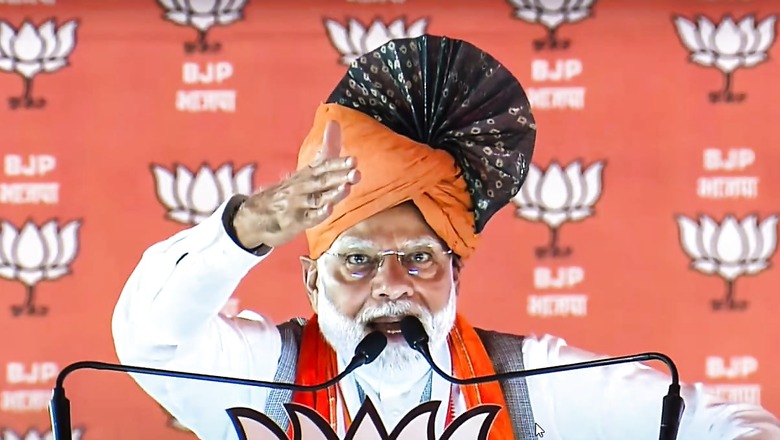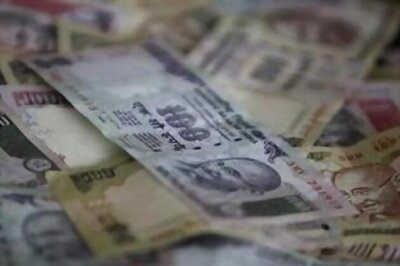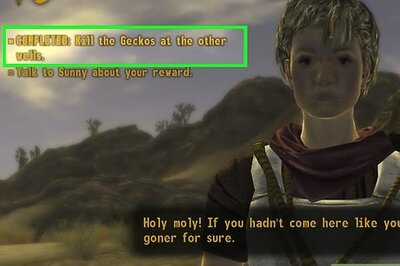
views
The Bharatiya Janata Party (BJP) pulled off a stunner in the Haryana assembly elections, proving all exit poll predictions wrong. The saffron party scored a hat-trick by recording its third straight victory in the state, bagging 48 seats and restricting the opposition Congress to 37.
According to poll analysts, BJP’s strategy of wooing non-Jat votes in Haryana paid off.
In March this year, the top leadership of the BJP realized that it will not be able to return to power if it continues with Manohar Lal Khattar as the Chief Minister. Hence, Khattar was made to resign on March 13 and Nayab Singh Saini was appointed the new CM the same day.
The BJP had experimented with this formula in several states earlier and it had proved to be effective for the party. By appointing Nayab Singh Saini the chief minister, the BJP got an OBC leader as the face of its government in Haryana. Following his appointment, Chief Minister Saini kept funding populist schemes in the state and swiftly corrected the mistakes of his predecessor.
Next, the BJP tried to woo Dalit voters in the state by referring to instances of injustice against them during the Congress government. The party highlighted the Gohana attack of 2005 and the Mirchpur killings of 2010, which took place during the tenure of the Congress government led by Bhupinder Singh Hooda.
When Prime Minister Narendra Modi came to Haryana for campaigning, he mentioned the Mirchpur and Gohana incidents in his speeches. These two cases of Dalit atrocities were also highlighted by Union Home Minister Amit Shah, former chief minister Manohar Lal Khattar and Chief Minister Nayab Singh Saini in their rallies. BJP leaders kept mentioning these incidents in their campaign to portray the Congress as an anti-Dalit party.
What Happened in Gohana in 2005?
The 2005 incident refers to an episode of inter-caste violence in which around 50 Dalit homes were torched allegedly by people from the Jat community in Gohana, which is located in Haryana’s Sonipat district. The violence erupted following allegations that some Dalits had murdered a Jat youth. A CBI Special Court later acquitted all 11 accused in the case, citing lack of concrete evidence and altered witness statements as reasons for the acquittal.
What Happened in Mirchpur?
In a similar incident, in Mirchpur, a village in Haryana’s Hisar district, several houses belonging to the Valmiki community were destroyed on April 21, 2010. According to eyewitnesses, a mob from the Jat community stormed into the homes of the Valmiki community and set the houses on fire. An elderly man and his disabled daughter tragically lost their lives.
The court later sentenced 20 individuals to life imprisonment for their role in the attack. However, even before the court’s ruling, more than 125 Dalit families had fled Mirchpur village. They have not returned to this day.
It was widely speculated that if the Congress returns to power in Haryana, Bhupinder Singh Hooda would once again be appointed as the Chief Minister. Hence, the BJP kept highlighting these two instances of Dalit atrocities which occurred during Hooda’s tenure.
By emphasizing these incidents, the BJP sought to weaken Congress’s pro-reservation stance, portraying the party as essentially anti-Dalit. The BJP attempted to consolidate the Dalit community, by indicating that if Hooda, a Jat, is appointed the Chief Minister again, Dalits could again be in the line of fire.
Dalits constitute 21% of the population in Haryana. The Haryana Assembly has 17 reserved seats. Moreover, there are 35 Assembly seats in the state where Dalit voters play a decisive role.
During the Lok Sabha elections, the BJP lost five seats in Haryana, largely due to dissatisfaction among Dalit voters. Hence, in an effort to regain their support, the BJP left no stone unturned this time, with leaders consistently raising issues faced by Dalits in the state.


















Comments
0 comment